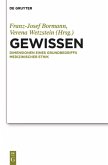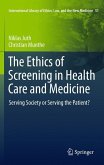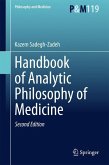Are we allowed to do what we are able to do? What principles should we use to decide?These questions have accompanied medical treatment from the beginning. Yet they are particularly salient when dealing with an organ so central to our understanding of the self as the human brain. Constant technological development has expanded medicineâ??s scope of possible interventions and made formerly unthinkable situations probable, and pressure to make decisions in these cases makes ethical reflection necessary. This book takes into account both anthropological models and the results of modern neuroscience in order to develop criteria useful for practitioners in ethically difficult cases.
Dürfen wir, was wir können? Woran sollen wir uns orientieren? Diese Fragen begleiten medizinisches Handeln seit jeher. In besonderer Weise stellen sie sich bei Eingriffen in das Organ, das für die Identität unserer Person eine so zentrale Rolle spielt, in das Gehirn. Durch die sich ständig erweiternden Handlungsmöglichkeiten der modernen Medizin rücken Szenarien in greifbare Nähe, die weit über das bekannte Maß hinausgehen. Der mit ihnen verbundene Entscheidungsdruck macht eine ethische Reflexion notwendig, die unter Bezug auf anthropologische Modelle einerseits und die Ergebnisse der modernen Neurowissenschaften andererseits Kriterien entwickelt, an denen sich der Handelnde in der Praxis orientieren kann.
Dürfen wir, was wir können? Woran sollen wir uns orientieren? Diese Fragen begleiten medizinisches Handeln seit jeher. In besonderer Weise stellen sie sich bei Eingriffen in das Organ, das für die Identität unserer Person eine so zentrale Rolle spielt, in das Gehirn. Durch die sich ständig erweiternden Handlungsmöglichkeiten der modernen Medizin rücken Szenarien in greifbare Nähe, die weit über das bekannte Maß hinausgehen. Der mit ihnen verbundene Entscheidungsdruck macht eine ethische Reflexion notwendig, die unter Bezug auf anthropologische Modelle einerseits und die Ergebnisse der modernen Neurowissenschaften andererseits Kriterien entwickelt, an denen sich der Handelnde in der Praxis orientieren kann.








